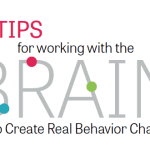How change and COVID-19 are creating anxiety

How change and COVID-19 social distancing are creating anxiety & why self-care is crucial
As the COVID-19 pandemic sweeps around the world, we are dealing with a shock to the system, personally, professionally and globally. Some of us are doing our best to produce work from home while caring for our families under the same roof 24/7. Others must call on our deepest reserves to make it through devastating losses. Still others will be called into action to help our hurting neighbors, colleagues, and communities.
Covid-19 has thrown most of us into perhaps the most substantial change journey we'll ever face. These changes are causing anxiety, confusion, fear and no small amount of scrambling to meet new needs. We need to do our best to take care of ourselves in order to take care of each other, and to make it to the other side.
The brain science of change tells us that our amygdala perceives any change as potentially dangerous, kicking up fear and anxiety. But that reflex is on hyperdrive right now as our literal survival is threatened. Take stock of how you are feeling the impact of this global change. And then, call on support practices to help steady yourself to continue.
Doing the best you can under the circumstances, try to:
- Eat for health - Watch overeating out of boredom or anxiety. When grocery store shelves are bare, it can trigger deep survival instincts and cause us to overeat the food we do have. Do the best you can to make healthy choices. Get creative with the supplies you find. When you eat, slow down your chewing, and taste the food. Our senses give us an opportunity to get out of our heads.
- Control your news sources - Our mirror neurons pick up on the emotions of others, which can create social contagion. Watching too many news clips will activate more triggers than you need to engage. Try limiting yourself to one or two 10-minute windows to check the news from trusted sources.
- Do calming activities - There are things we can do to calm our nervous system too so pick a few that work for you. Things like reading a novel, making art, organizing, exercising, and even binge watching shows. Whatever helps you contain the anxiety are great options.
- Practice gratitude - A scientifically proven way to manage distressing events, focus on things you are grateful for. Pick a time of day to practice listing at least 3 things you are grateful for. This can be a wonderful and calming activity to do alone, share on the phone with a friend, or do with your family either during a meal or right before bed.
- Get sufficient sleep - It is a vital function that builds immunity to anxiety and depression. Avoid distressing things that can inhibit and alter sleep, like checking the news. Instead, engage in calming, wind-down rituals. Some of my favorites are drinking warm herbal tea, doing some stretching, and my gratitude practice with my family.
This dramatic change journey is also activating other parts of our brain. We might feel lost, especially if the change impacts our physical space or social networks, such as working from home and physical distancing. This causes our entorhinal cortex, the part of our brain that makes mental maps of space and networks to do extra work as we adjust to this new normal.
If we have to learn new skills or habits, like better hygiene or how to work from home and/or homeschooling our children, our basal ganglia will need some time to get enough repetitions to build a new automated habit. Did you know it takes 40-50 repetitions, on average to form a new habit that we don't have to think about? Every time you use a video conference tool or wash your hands for 20 seconds or identify things you are grateful for, you are building that neural pathway.
In the midst of all this chaos, you'll likely be creating new habits as a function of how the change impacts daily life. If you have the mental and emotional bandwidth, consider that it may be a great time to practice new habits you want to create. Intentionally use this time that normal routine is disrupted to establish some more positive habits.
Another skill to develop is how you manage your worries. Change in general brings up predictable worries. Dr. David Rock, of the NeuroLeadership Institute, shows with his SCARF Model that there are five areas we focus on, particularly when under stress:
- Status: Our sense of importance in relation to others
- Certainty: Our ability to predict the future
- Autonomy: Our sense of control over events
- Relatedness: A measure of our trust of others
- Fairness: Our perception of how fair or equal things are
According to Rock's research, humans naturally sort for these, and we are wired to move toward experiences that improve these aspects, and away from those that threaten us.
However, with each of these balances in peril under the stress of the pandemic, digging deeply into our sense of self is of utmost importance to find these elements within, rather than in the structures we rely on outside ourselves.
The practices that follow help regulate our nervous systems and help us build confidence from the inside - to redefine and re-develop a sense of our importance, our acceptance of a future we have yet to know, a release of control over events, an ability to trust, and a recognition of equanimity.
Self-Care
First, radical self-compassion. Whatever you are trying, if you are completing any percentage of it, that is enough. Come back to it the next day after some sleep and re-engage with this new habit-making. If you keep getting distracted, give yourself some patience. Difficulty focusing is a natural response to trauma and disruption. Dr. Brené Brown offers some great wisdom "for falling apart, staying connected + kind, and giving ourselves permission to feel hard things" in her recent podcast.
Let yourself lower your expectations. It is just not possible to produce the amount or level of work you were previously doing while now juggling the stress of the pandemic. With our survival brain more triggered, access to higher-ordered thinking, like analysis or creativity, is reduced. And if you also have your children and partner at home, you are likely spending a good portion of your day educating and entertaining your kids-not very conducive to doing your best work. So don't. We are living through unprecedented times, so be gentle with yourself and others. Whatever you are doing is good enough.
Next, the basics: good nutrition, sufficient sleep and exercise. We all know these are good things to do for our bodies but during times of stress, they become even more important. Did you know that exercise increases serotonin, the feel-good chemical? We could all use more of that, so find ways to move your body. You don't need fancy equipment to get a good workout. Get creative and use your own body weight (think squats or planks) as well as things you have around the house for free weights (soup cans). Yoga not only builds strength, it has the added benefit of being a mindfulness practice that can help us calm our nervous system.
Also, we are fortunate because lots of companies are offering free access to online classes. Here are some to consider (feel free to add others you know in the comments):
- Free Yoga for Kids: Cosmic Kids Yoga
- Free Online Exercise Offers
- Online Course: Mindful Workday
- Free 33-day trial to Grokker
Mindfulness
Mindfulness girds us against the harmful effects of change, and can be an antidote for the stress that often accompanies it. Whether it's meditation, yoga, being present, or expressing gratitude, mindfulness plays a powerful role in our brains. There is a reason that every wisdom tradition since the beginning of history purports some type of mindfulness practice.
You don't have to be a guru or a yogini to get the effects of meditation. The groundbreaking research of Dr. Richard Davidson, coauthor of Altered Traits: Science Reveals How Meditation Changes Your Mind, Brain, and Body , has shown that meditating even one time permanently changes the brain in a measurable way. People who meditate are able to focus longer, they are less likely to worry about future events, and when something stressful does happen, they experience less distress in the moment and return quickly to their normal state.
Dr. Sara Lazar, at the Harvard University Medical School, found that a daily mindfulness practice actually shrinks the amygdala, making it less reactive.
In addition, several studies have shown that both gratitude and mindfulness make the brain more receptive to learning, which is vital during change, as we gain new skills and habits. Dr. Alex Korb synthesized some of the key findings on gratitude in his Psychology Today article titled "The Grateful Brain: The Neuroscience of Giving Thanks." Studies have shown that intentional gratitude practices boost attention, determination, and enthusiasm and reduce anxiety, depression, and physical ailments.
If you have not yet explored mindfulness, I encourage you to check it out. Many yoga studios, meditation teachers and mindfulness practitioners are offering their services and sessions in free live streams online during this time. It can be a lifesaver to tune in and take care.
Play
It might be difficult to contemplate, but play is a potent element of self care. Have you ever watched children after a family or community trauma? Play is among the first things they'll return to. Play generates optimism, spurs curiosity, fosters empathy, cultivates perseverance, and leads to mastery, according to the National Institute for Play. Conversely, societies, families, and other cultures that maintain a prolonged deprivation of play have been shown to experience increased depression, stress-related diseases, addictions, and interpersonal violence.
Can you find ways to play while social distancing? People self-isolating are finding ways to play with co-workers, with card games over Zoom, question games, and conference call bingo. ConferenceCallFun.com offers hilarious daily costume inspiration that pairs with videoconferencing background options. Check out the background function on your video conference platform, and use it to organize a costume work party with your co-workers. Make a work day game of the conference call bingo.
In personal time, the socially interactive video game, Animal Crossing, has become wildly popular since social distancing has become widespread. And friends are playing charades over Skype or Google Hangouts, as well as sharing and ranking favorite youtube parodies and comedies.
Another great option is singing. Singing brings so many physical and emotional benefits and songs are a potent way to express our emotions. Community singing groups all around the world are offering online options and neighbors can join each other from their porches or balconies.
In play, our physical and emotional state allows our creativity to flow. Our logical and analytical left brain takes a break so our right brain can start making all kinds of insightful connections. This makes play a stress reliever and a problem solver.
Every moment of levity we can generate and partake in now is important. Neuroscience has demonstrated that playful environments powerfully shape the cerebral cortex, the part of the brain where the highest level of cognitive processing takes place. So when it feels like too much, toss a ball at the wall. Enlist a friend in a word game. It can be simple and solitary or complex and collaborative. The most important thing: make it fun.
It can be hard to think of playfulness in the kind of stress scenarios many of us are facing. I invite you to move your body, tell a story, play a character, collaborate, bounce a ball or cook or play a video game. Most of all, we may be in this shift for a while; doing your best to practice self-care, will help you be your best at helping and leading others.
This post excerpted from my book Wired to Resist: The Brain Science of Why Change Fails and a New Model for Driving Success
Related Blogs
JOIN OUR COMMUNITY
Be the first to know of Dr. Britt Andreatta's latest news and research.





